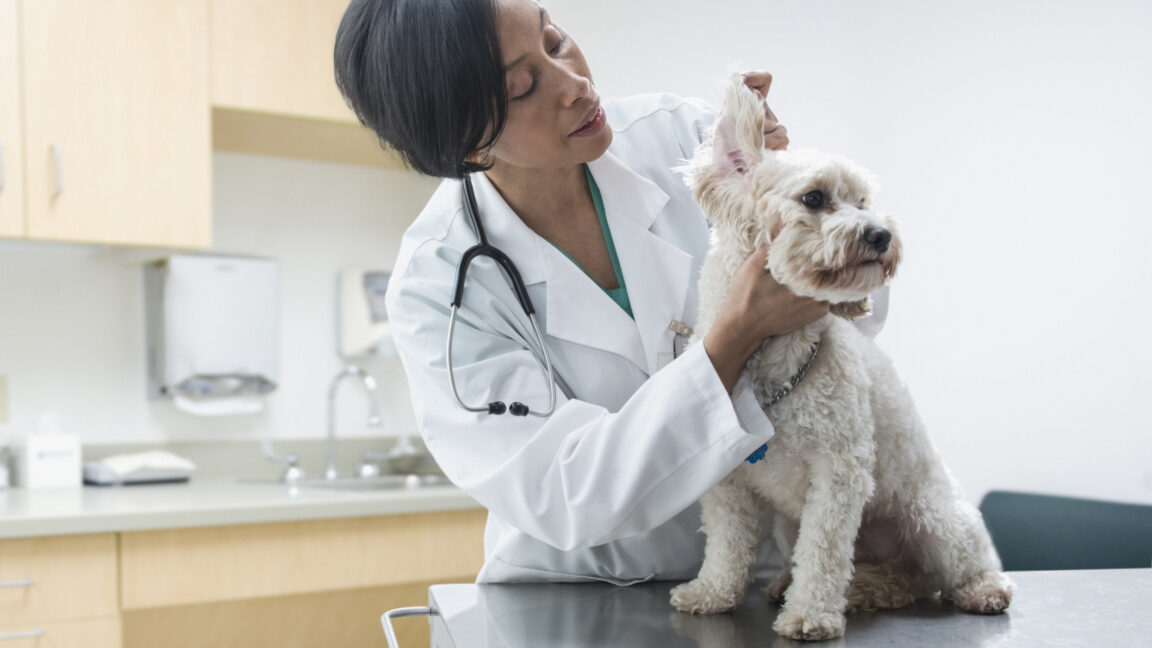ARSTECHNICA.COM
DC-area veterinarians on heightened alert amid potential inauguration risks
Enhanced surveillance DC-area veterinarians on heightened alert amid potential inauguration risks There is no specific threat, but the alert highlights One Health approach to risk. Beth Mole Jan 20, 2025 2:57 pm | 2 Credit: Jose Luis Pelaez Inc via Getty Credit: Jose Luis Pelaez Inc via Getty Story textSizeSmallStandardLargeWidth *StandardWideLinksStandardOrange* Subscribers only Learn moreVeterinarians in the Washington, DC region have been put on alert for any unusual illnesses in their non-human patients amid today's presidential inaugurationa nod to the significance of potential zoonotic bioterror threats.In a recent letter to Virginia veterinarians, the state health department requested assistance in the "enhanced surveillance," while noting that, currently, there is no report of threats or bioterrorism-related illnesses."As with any large-scale public event, there will be heightened security, and the region will be on alert or signs of bioterrorism or other potential threats," the letter read. "Enhanced surveillance is being conducted out of an abundance of caution."Health officials are asking veterinarians to report any animals who develop an unusual, severe illness within 14 days of exposure to the National Mall area during the inaugural period between January 19 and January 21. The cases could include animals who travel to the area or who live there. If such a case arises, veterinarians should report the case "rapidly by phone" to the officials in the state's Zoonotic Disease Program. That includes State Public Health Veterinarian Julia Murphy.In an interview with Ars Technica, Murphy noted that the health department has requested enhanced surveillance from veterinarians in the past. "We did a similar thing for the last inauguration," she said.The recruitment of veterinarians highlights the threat posed by zoonotic diseasesthat is, those that can transmit between animals and humans. And it demonstrates the value of a "One Health" approach to health, which recognizes the interconnection between animals, humans, and shared environments.In emerging outbreaks or bioterror events, animal illnesses have the potential to act as sentinelsthe first to show signs of a diseaseas well as be informative for understanding the geographic scope and severity of an event, Murphy explained. For instance, the bacterium Francisella tularensis, which causes a potentially serious illness called tularemia, is particularly dangerous for rabbits and rodents. "Their incubation period can be quite shorttypically, not alwaysbut it can often be shorter than in people," she said, referring to the time between an exposure to an illness and when symptoms develop. F. tularensis is considered a potential bioterror weapon and appears on the federal list of Select Agents and Toxins.Role of animalsMurphy also noted the role of birds in detecting the introduction of West Nile Virus to North America in 1999. In August of that year, the New York City Department of Health identified eight people with severe encephalitis (brain inflammation) within a 16-square mile area around Queens. It was not immediately clear what was behind the disease cluster, but a deadly outbreak among area birds at the same time led disease detectives to the answer. West Nile Virus was first isolated from tissue samples from American crows in neighboring Westchester County, N.Y., and a Chilean flamingo in a nearby zoo. Subsequent testing linked the virus to the human cases.In regard to a potential biological or toxic threat at the inauguration, health officials left the possibilities wide open. The letter notes some recognizable threats, such as anthrax, tularemia, Ebola, plague, and botulism. A noninclusive list of concerning symptoms included fever, vesicles, hemorrhage, severe head and neck swelling, paralysis and other neurologic signs, sepsis, multi-organ failure, and death.But Murphy emphasized that these were just some examples. What veterinarians should really look for is a combination of something unusual, exposure to the inauguration area, and being in the two-week window."If they're seeing anything that that strikes them as unusualmaybe unusually severe illness or clusters of illnessand they have any concern at all that that animal may have had some type of connection to the general area around which the inauguration is happening, they should alert us and we can talk it through," Murphy said.Next steps would include connecting with diagnostic resources, and potentially reaching out to the Centers for Disease Control and Prevention and the US Department of Agriculture.Murphy also noted that the public health system has built up strong relationships with the clinical veterinarian community. "If something was to happen, I have a high degree of confidence that we would hear about it early and quickly."Beth MoleSenior Health ReporterBeth MoleSenior Health Reporter Beth is Ars Technicas Senior Health Reporter. Beth has a Ph.D. in microbiology from the University of North Carolina at Chapel Hill and attended the Science Communication program at the University of California, Santa Cruz. She specializes in covering infectious diseases, public health, and microbes. 2 Comments
